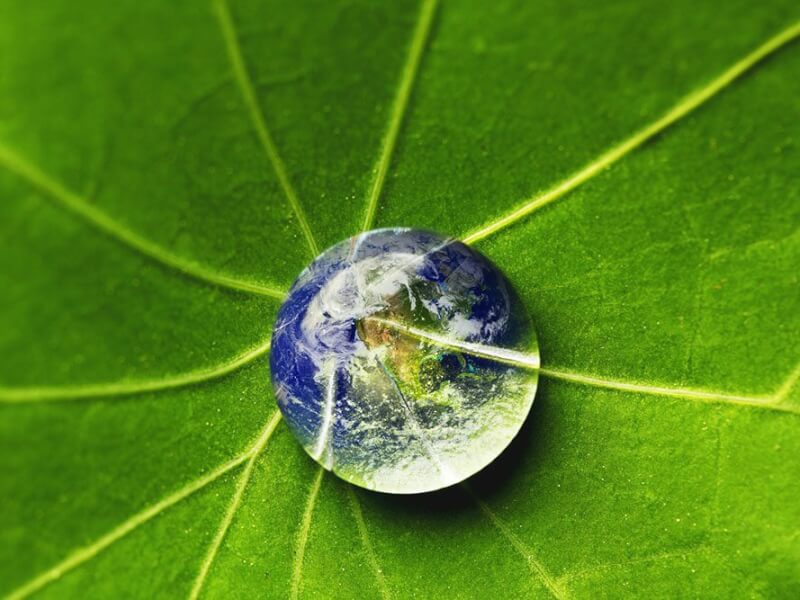16 August 2022 – We are living in the Anthropocene, an age in which human activities are having increasingly dramatic impacts on the world’s natural systems. Regrettably, modern humans have evolved into Homo detritus, a species that extracts resources beyond the capacity of ecosystems, produces mountains of waste and pumps dangerous levels of carbon dioxide into the skies. To achieve sustainable development goals – while avoiding planetary tipping points – deep systematic change is needed.
I believe the key to this transformation is an active international system based on solidarity and equity, values that have long been forgotten within the capitalism-patriarchy. The new system should be inspired by the Ubuntu philosophy or more specifically, Umuntu, ngumuntu, ngabantu, translated as “a person becomes a person only through other persons”. In our context it can be: “a country becomes a country only through other countries”.
Sustainable development requires two overarching and complementary conditions. On the one hand, countries with a low human development index (HDI) need to raise living standards while controlling the increase in their ecological footprints. On the other, countries with an HDI over 0.7 need to drastically reduce their ecological footprints, and transform their consumption patterns towards sustainability.
However, there is no one-size-fits-all pathway; we should consider each nation’s unique context. International obligations should factor in national differences in economies, natural assets and historical carbon dioxide emissions. Crucially, human development should never be compromised and nations should not be deprived of the sovereign right to control their natural resources.
Four types of nation
Today many nations are living beyond their natural limits, especially in the rich world. The Global Footprint Network and the Footprint Data Foundation found that 134 countries have an ecological deficit: meaning their ecological footprints exceed their biocapacities. Of these countries, 87 have a deficit greater than 100%, with Singapore having the most extreme figure: 10,300%. To extend the analysis, I believe that all countries can be divided into four distinct categories by considering their ecological footprint alongside their HDI ranking:
- High-income debtor: A nation with a high HDI and ecological footprint exceeding its biocapacity. Examples include the United States, most European nations, as well as several Asian countries including China, Japan and India.
- Low-income debtor: A territory with an ecological footprint exceeding its national biocapacity, but with a less developed economy. Countries in this group – which includes Haiti, Bangladesh and Rwanda – must find ways to improve living standards for current generations without worsening their ecological footprint indefinitely.
- Low-income with reserves: More than half of these “ecological creditors” are in Africa, including Gabon (with a biocapacity exceeding its ecological footprint by 869%); Congo (754%); and Central African Republic (524%). Globally, French Guiana is the territory with the highest biocapacity/ecological footprint ratio (4,810%).
- High-income with reserves: The fact that some rich countries have ecological reserves is partly due to geography, surface area and population, but also to policies put in place to manage the environment and natural resources. There are just four countries in the world with high biocapacity reserves and a high Environmental Performance Index (EPI): Finland, Sweden, Norway and Canada.
Africa targets “development first”
Notably, African nations account for just 30 of the 100 or so low- and middle-income countries with a biocapacity deficit. At the same time, the majority of African nations rank relatively low in human development metrics. For the African continent the priority is clear: development first.
To finance “development first” it is essential to build the tax capacity in low- and middle-income countries by clamping down on tax evasion, tax avoidance, illegal transfers and tax exemptions. According to a 2021 report by the Tax Justice Network Public Services International and the Global Alliance for Tax Justice, African countries lost some US$17.1 billion in tax revenues in 2021 due to tax evasion alone. Even in nations such as Senegal, Côte d’Ivoire and Ghana that have recently become oil and gas producers, the profits from fossil fuel extraction are likely to be less than the unrecovered fiscal potential from tax.
But rapid and sustained economic growth is occurring in Africa: from 2000–2015, the average growth rate for most African countries was 5% (real GDP). Despite this trend, poverty reduction and human development objectives are constrained by current infrastructure and many people still lack access to reliable electricity. Given that the continent has abundant renewable energy resources – with potential for hydro, geothermal, biomass, solar and wind power – there is an opportunity in some nations for an “energy leapfrog” that bypasses rapid expansion of fossil fuel use.
Worldwide, as low- and middle-income nations seek sustainable growth models they could take inspiration from some Scandinavian and Nordic countries. Denmark is an impressive exemplar. Despite having limited natural reserves it had the world’s highest EPI in 2020, thanks to the originality of its climate finance programme and its innovations in solid-waste management. The Danish example gives hope that Homo detritus will eventually make way for more eco-focused societies based on solidarity and equity.
Deep Dive 09: Growth within limits through solidarity and equity






